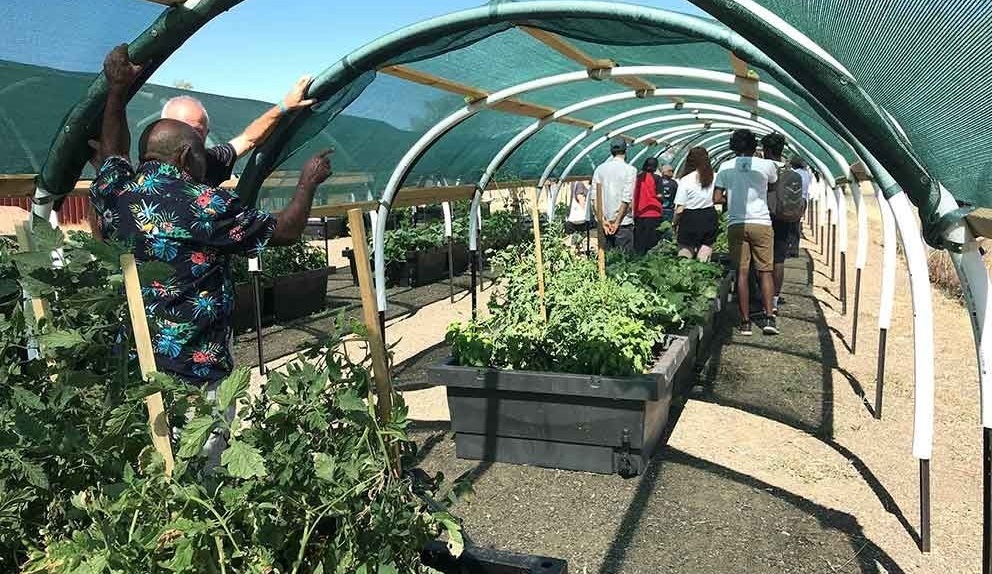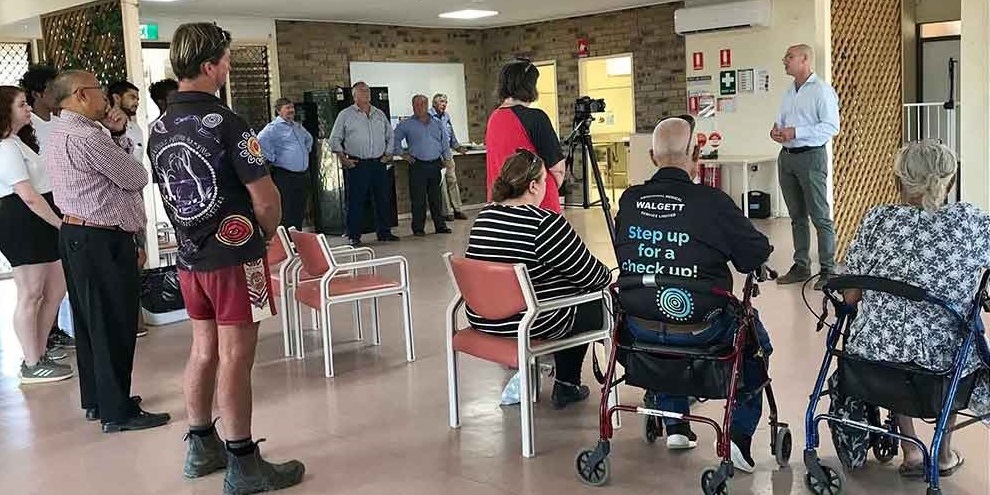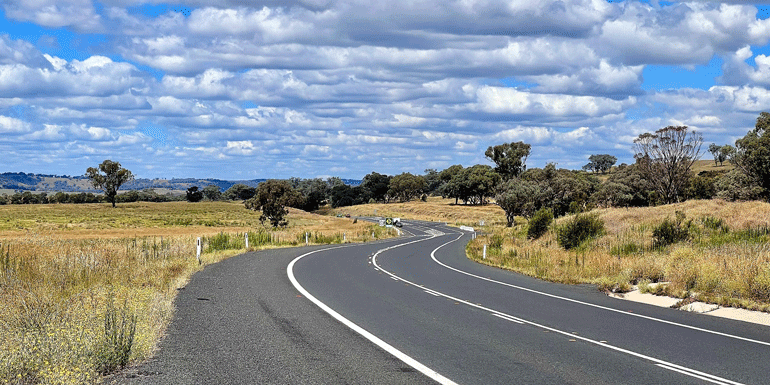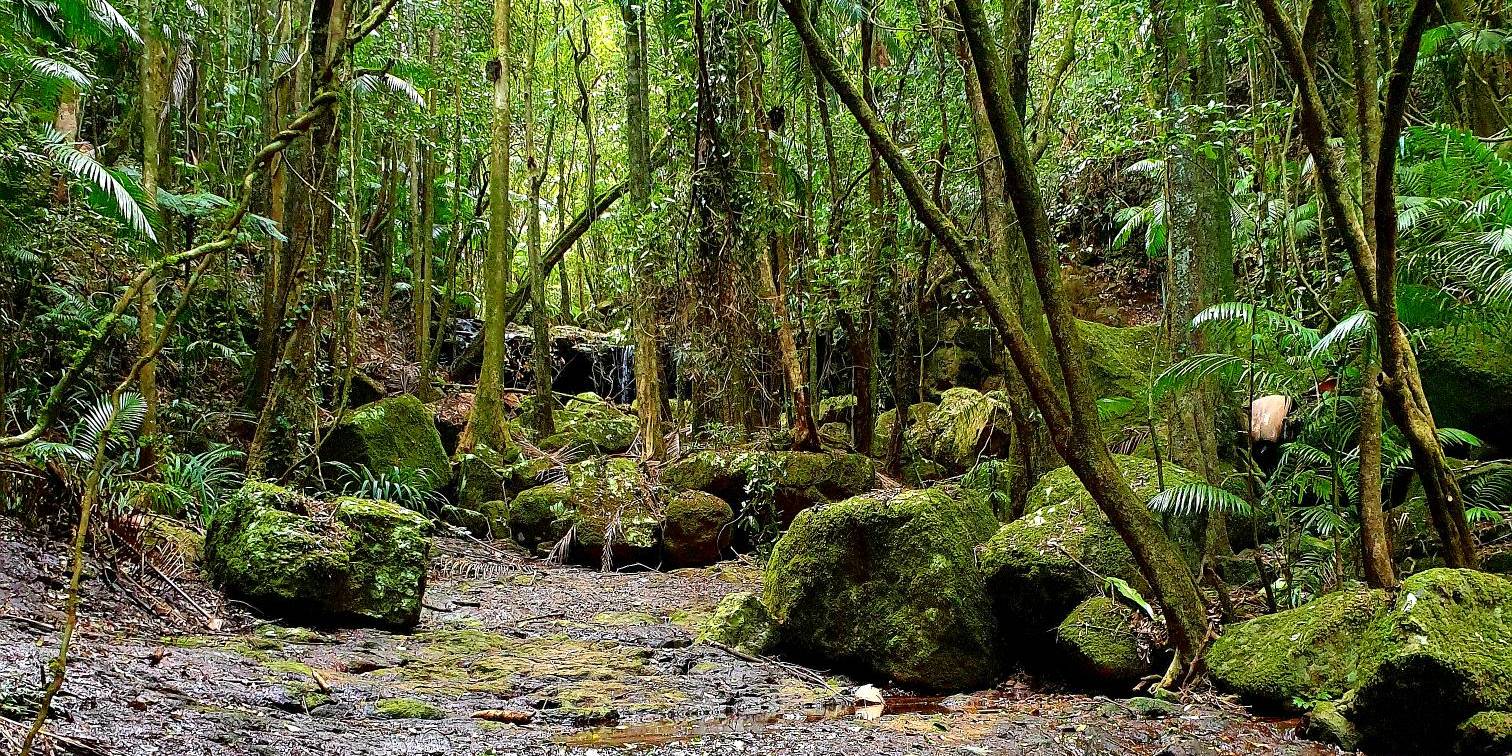About this case study
Drought
Communities
Climate smart design
The Dharriwaa Elders Group have adapted the community garden to make it resilient to drought, securing food for chronically ill Walgett residents. The water-resilient community garden project is a foundational block to enable a broader program for building resilience.
We want to offer inspiration for other remote communities experiencing similar issues and wanting to prepare for climate change and improve food security and nutrition.
Virginia Robinson, Secretary of the Dharriwaa Elders Group
Seven years of severe drought, the drying up of the Barwon and Namoi rivers, loss of the only supermarket by fire and then the COVID-19 pandemic which disrupted supply chains created significant issues of water and food security in Walgett.
The community garden operated by the Walgett Aboriginal Medical Service (WAMS) had previously provided healthy, fresh food boxes to chronically ill Walgett residents but was destroyed by drought and severe water restrictions which followed.

As Wendy Spencer, Project Manager of the Dharriwaa Elders Group and Walgett Lead of the Yuwaya Ngarrali partnership with the University of NSW explains, “With food no longer being available from the rivers and later, the loss of the community supermarket, healthy food had become increasingly expensive and difficult to obtain”.
“We needed the garden to be productive again so, with the UNSW Global Water Institute, we researched several solutions to create a water resilient garden” says Ms Spencer.
After some trial and error, UNSW students landed on using Biofilta garden pods. The pods trap water in a reservoir underneath each bed as a way of growing a low water use garden.
“The beauty of the design is that it can be made inexpensively from easily available materials and local staff can continue to construct them as needed, so they can be part of the expansion of the garden in the future,” says Pauline Futeran, Collaboration Co-ordinator, Yuwaya Ngarrali UNSW.
With the help of a grant from the NSW Government, the Dharriwaa Elders Group installed the new water-efficient garden pods thereby resuming a food supply from the Community Garden. There are now 48 Biofilta garden pods installed that will produce up to 144 kilograms of fresh vegetables every 12 weeks for community food programs, improving accessibility to good nutrition and reducing carbon emissions by transporting food into the community.

There are plenty of lessons to learn from a project like this including:
- investing in researching and trialling the right product for the local climate. The cheaper product may not be the best for the local environment
- allocating a budget for trialling and testing various solutions
- allowing the time to secure the right suppliers
- mobilizing expertise of universities
- communicating regularly with and involving your community.
The garden is a foundational project to enable a broader program for climate resilience with the Dharriwaa Elders Group hoping to generate enough food to supply food boxes to Walgett Aboriginal Medical Service’s chronic disease clients.
This project is one element of the Food and Water for Life Project that Dharriwaa Elders Group with Walgett Aboriginal Medical Service are leading in collaboration with the UNSW’s George Institute for Global Health and the Global Water Institute.
The garden creates a meeting place for Elders to enjoy a cup of tea before taking home a little bag of veggies.
Wendy Spencer
This project was funded by an Increasing Resilience to Climate Change grant from the NSW Government.



